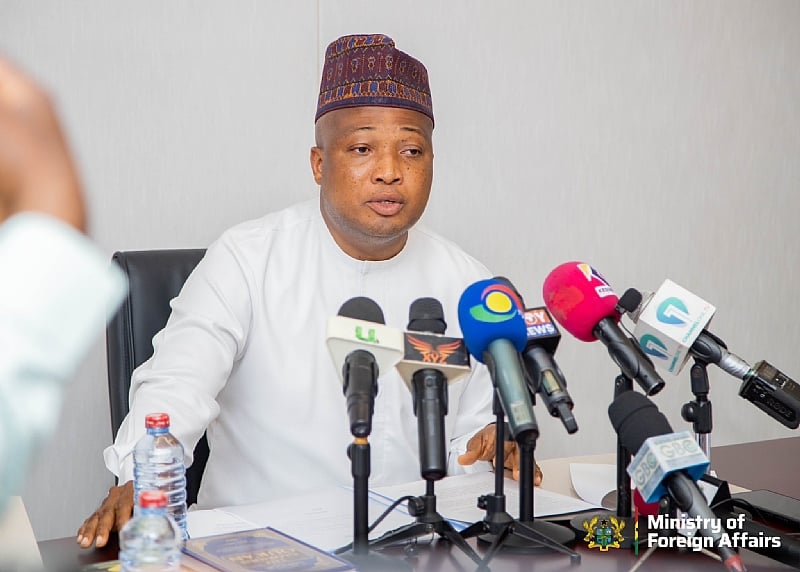The absence of Ghana’s Minister of Foreign Affairs, Samuel Okudzeto Ablakwa, from a parliamentary session where he was expected to answer urgent questions sparked controversy and accusations of disrespect from the Minority and the Speaker of Parliament. The minister’s failure to appear, coupled with the lack of initial explanation, fueled existing concerns about the perceived evasiveness of some government officials. Speaker Alban Bagbin expressed his strong disapproval, suggesting the possibility of issuing an arrest warrant for the minister, highlighting the seriousness of the perceived slight to the authority of Parliament. The incident underscored the importance of accountability and the expectation that government ministers will be responsive to Parliament’s requests for information and clarification.
The Ministry of Foreign Affairs subsequently clarified the minister’s absence, attributing it to a scheduling conflict arising from a pre-existing national assignment abroad. In a formal letter to Parliament, the ministry explained that the invitation to appear before the house was received on June 9th, requesting the minister’s presence the following day, June 10th. However, at that time, Minister Ablakwa was already out of the country, participating in the Forum on China-Africa Cooperation (FOCAC) in Changsha, China. The ministry emphasized that the short notice of the invitation, received just a day before the scheduled appearance, made it logistically impossible for the minister to return in time. Furthermore, the letter pointed out that the minister was accompanied by members of the Parliamentary Select Committee on Foreign Affairs, suggesting the importance and pre-planned nature of the FOCAC engagement.
The ministry’s explanation underscored the complexity of coordinating ministerial schedules, particularly when international commitments are involved. The short timeframe between the invitation and the expected appearance left little room for adjustment, especially considering the travel time required for an intercontinental trip. The inclusion of parliamentary committee members in the minister’s delegation to China further highlighted the significance of the FOCAC forum and its relevance to Ghana’s foreign policy agenda. The ministry’s letter aimed to clarify the circumstances surrounding the minister’s absence, portraying it as an unavoidable scheduling conflict rather than a deliberate act of disrespect towards Parliament.
Minister Ablakwa himself addressed the issue publicly, taking to social media to confirm that he had no prior knowledge of the parliamentary invitation. He reiterated his respect for Parliament and his commitment to fulfilling his parliamentary duties, emphasizing his consistent willingness to respond to inquiries and participate in parliamentary proceedings. The minister’s personal statement served to reinforce the ministry’s explanation and further dispel any suggestion of intentional avoidance or disrespect. He pledged to address the parliamentary questions as soon as the formal notice was brought to his attention, reaffirming his commitment to transparency and accountability.
The controversy surrounding Minister Ablakwa’s absence highlights the delicate balance between executive and legislative branches of government. While Parliament has the authority to summon ministers and demand answers, the ministers also have responsibilities that extend beyond the confines of the parliament chamber, including representing the nation on the international stage. Effective governance requires clear communication and coordination between these branches to avoid misunderstandings and perceived slights. The incident serves as a reminder of the importance of timely communication and the need for flexibility in accommodating unforeseen circumstances.
The incident also underscores the evolving role of social media in political communication. Minister Ablakwa’s use of social media to address the issue directly demonstrates the increasing tendency of public figures to utilize these platforms to control the narrative and engage directly with the public. This approach allows for rapid dissemination of information and provides an opportunity to bypass traditional media channels, enabling a more immediate and personalized form of communication. While social media can be a valuable tool for transparency and engagement, it also carries risks, as information can be easily misinterpreted or manipulated. In this case, the minister’s proactive use of social media appears to have been effective in mitigating potential damage to his reputation and reinforcing his commitment to parliamentary accountability.














